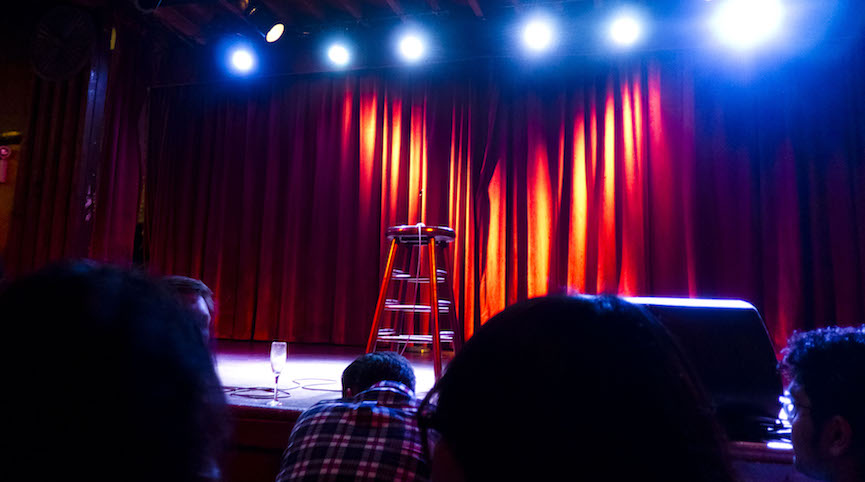Louis C.K. wasn’t at his best in a club set taped last week, as part of his unsettling comeback. The weakest part wasn’t his attack on young survivors of Florida’s school shooting, who testified before Congress and campaign against gun control. (“Why does that mean I have to listen to you? How does that make you interesting?”)
More offputting was a Get Off My Lawn quality, whose hallmark is always, “When I was your age.” E.g., “I’m a little disappointed in the younger generation… You should be young, you should be crazy… not in a suit.” As my late friend, Cathy Keachie, instructed: “Oldfartism lies in wait for us all.”
C.K. has tried to make his return about censorship. That’s legitimate; standup shouldn’t brook taboos. But it isn’t about breaking taboos either. It’s about being funny and incisive. You don’t challenge taboos just to be transgressive, unless you’re merely seeking attention.
In fact, no one asked him to self-censor for survival. He quit public life after claims about his behaviour that he freely and I’d say graciously admitted, and because, he said, “I will now step back and take a long time to listen.” It sounded genuine.
All he needed to prove it, was to do it. You can’t just return after a “bad year” — 9 months, actually — and announce the reason you left was censorship, which you now reject. (“I don’t give a sh–. You can be offended.”)
So why come back so fast, and so jarringly? There’s a distant Canadian analogue in pianist Glenn Gould, who in 1964, at 32 and a global celebrity, abruptly quit the concert stage to only record — something no other pianist had ever made a living at. (I’ve been reading Otto Friedrich’s Gould bio, it came at Christmas.)
Not the same, of course, but both concert stage and standup are known as “blood sports.” Gould called it that and compared performing to bullfighting. (Palestinian scholar-activist Edward Said, who also wrote on music, and revered Gould, called concerts an extreme sport, a term not in use when Gould died of a stroke in 1982, at 50.) In both, audiences come to see genius, but also, maybe, catastrophe. Gould called this the opposite of the artist’s purpose, which was to identify with the music. For the artist, “it’s not a contest, it’s a love affair.”
That sounds harrowing. On the C.K. tape, you can hear the crowd, raucous and ravenous, the crassest are loudest and set the tone, maybe egging him on in his worst impulses, since at least they’re reacting and you’re not bombing.
Gould hated the competitiveness of the concert stage (“I happen to believe that competition rather than money is the root of all evil.”) He also happened to be good at it, and drawn to it. It’s tempting to call fame and power mere dicey byproducts of art but he went further saying, “art is not inevitably benign, it is potentially destructive.” He wasn’t religious but what would now be called spiritual, and he may have hoped to save his soul, by forsaking the stage.
The success and adulation get into your system, like a drug, and it must be painfully hard to leave, or stay away. I’m not saying Gould and C.K. were similar in their motives for withdrawing, but rather in that draw to return — though C.K.’s reasons for leaving may also have gone beyond what he said, who really knows?
Gould faced his own version of temptation in the figure of the much older Vladimir Horowitz, who returned to Carnegie Hall after a ten year hiatus, just a year after Gould quit — to clangorous acclaim and an album pompously titled “An Historic Return.”
Was Gould also tempted? He spent part of his final years creating a satire based on Horowitz about Gould’s putative return concert: on an ice floe in the Arctic. It’s pretty hilarious, especially if you’re Canadian.
Louis C.K. is the Vladimir Horowitz of standup, at least in the irresistible impulse to get back up there. Whether he’s also Glenn Gould, in his reasons for getting out, there’s no way to know and so far, he’s not telling.
This article originally appeared in the Toronto Star.
Image: Dan Nguyen/Flickr
Help make rabble sustainable. Please consider supporting our work with a monthly donation. Support rabble.ca today for as little as $1 per month!




